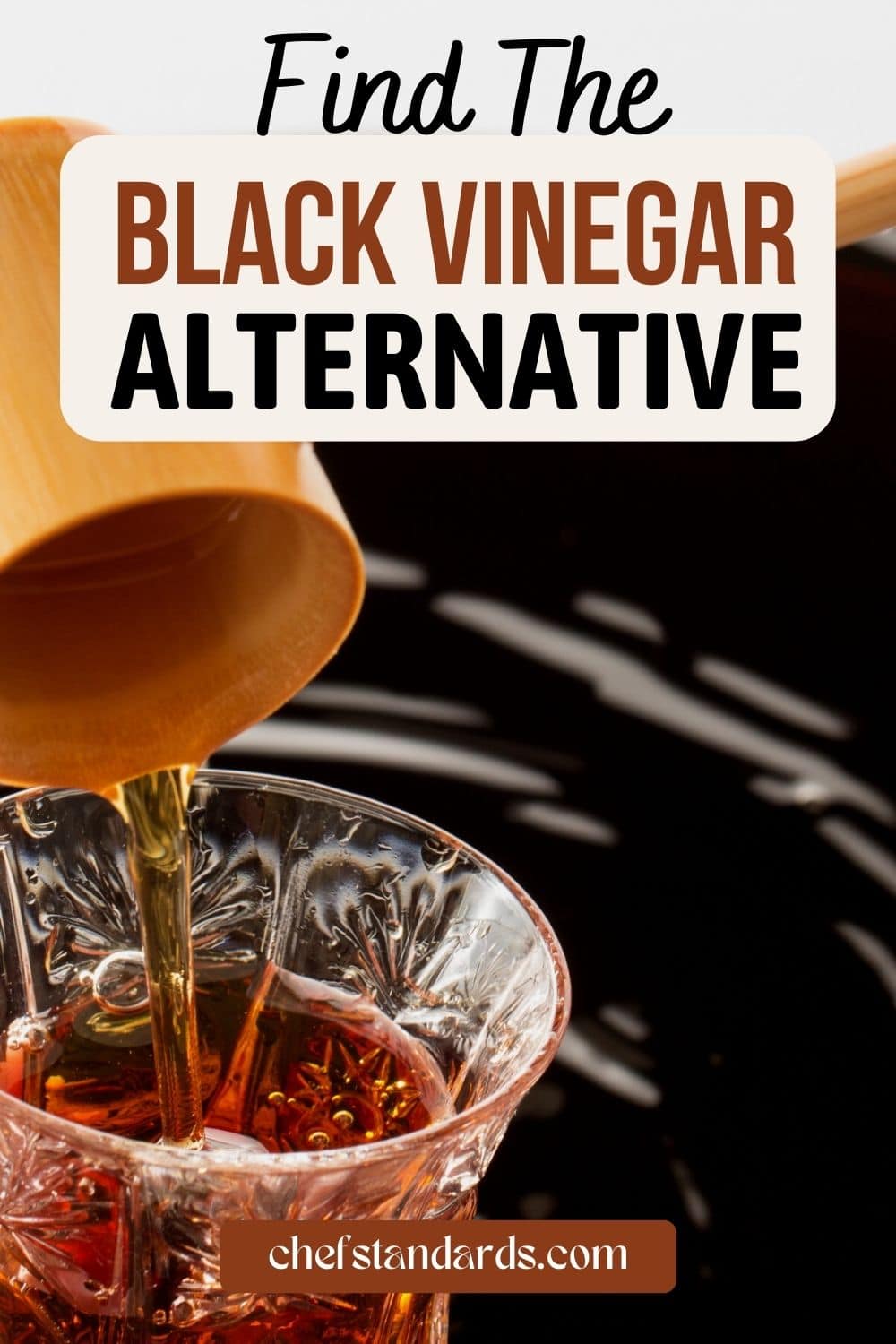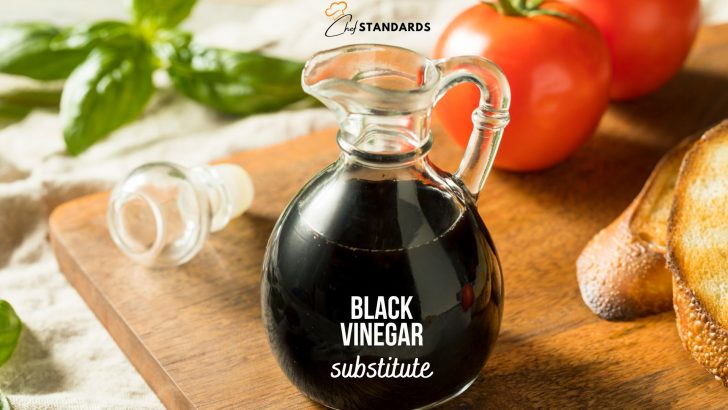Since this is Chinese vinegar, it is not hard to determine from which type of food it is produced. Yep, it is from the Chinese staple food called rice. This vinegar is made from fermented black, sticky rice or glutinous rice, alongside wheat, millet, and/or sorghum.
Actually, the full name of Chinese black vinegar is Chinese black rice vinegar. The other names for this type of vinegar include dark vinegar, Zhenjiang vinegar, and Chinkiang vinegar.
This type of vinegar is widely used in Chinese cooking. Chinese chefs and home cooks use it as an ingredient for a variety of dishes including stir-fries, noodles, all types of cold appetizers, braised meat, and fish, as well as a dipping condiment for dumplings.
It can also be used as dressing for salads and appetizers, such as Tofu salad or Suan Ni Bai Rou, which is a sliced pork belly with garlic dressing.
This Asian version of vinegar is black in color and has a very complex taste, but it has less acidity than the regular white vinegar that is predominantly used here in the West. Chinese black vinegar also possesses a few sweet undertones.
So, if you planned to prepare some delicious stir-fries or some kind of noodle dish, but don’t have any Chinese black vinegar, here are some excellent Chinese black vinegar substitutes that you need to take into consideration.
What Are The Best Chinese Black Vinegar Substitutes?
Below you will find the ultimate list of the 13 best substitutes for black vinegar you definitely need to try.
1. White Rice Vinegar
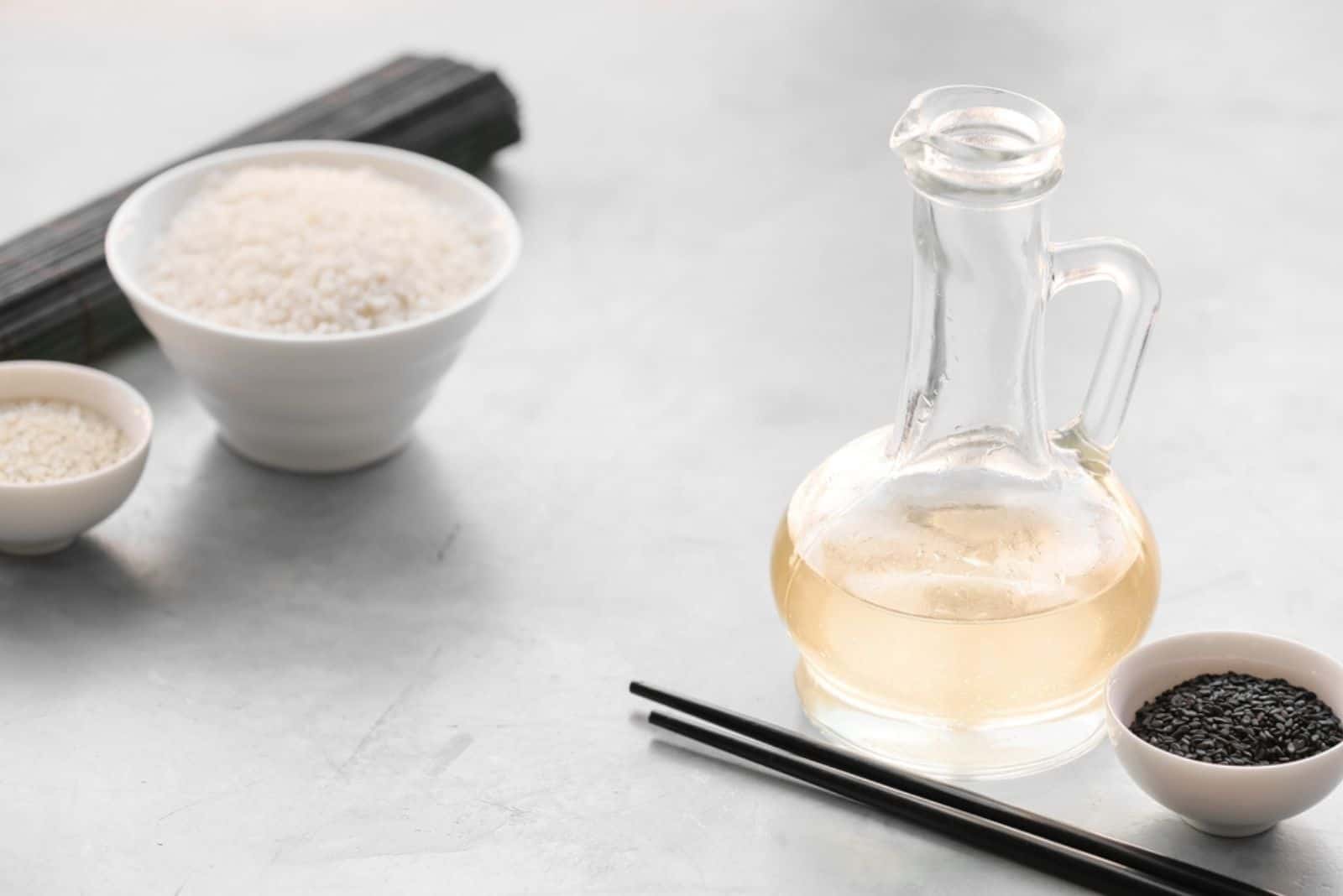
I will start with a close relative of Chinese black rice vinegar and that is white rice vinegar, also called rice wine vinegar. There are 3 main types of rice vinegar and those are black rice vinegar, white rice vinegar, and red rice vinegar.
Considering this, it is not a surprise that white rice vinegar landed first on this list of black vinegar substitutes. White rice vinegar is made by the fermentation process of rice that is then distilled.
The result of that process is a clear, pale-yellow liquid that possesses a sharp, acidic flavor. This type also has those sweet undertones.
It is widely used in Asian cuisine, especially in Chinese cuisine, for making marinades for meat, as well as dipping sauces.
You can find white rice vinegar in most Asian grocery stores.
Use an equal amount of white rice vinegar as you would use black rice vinegar. Just be careful when boiling vinegar if the area in which you are boiling it is not ventilated and if the concentration of acetic acid in the vinegar is too high.
2. Balsamic Vinegar
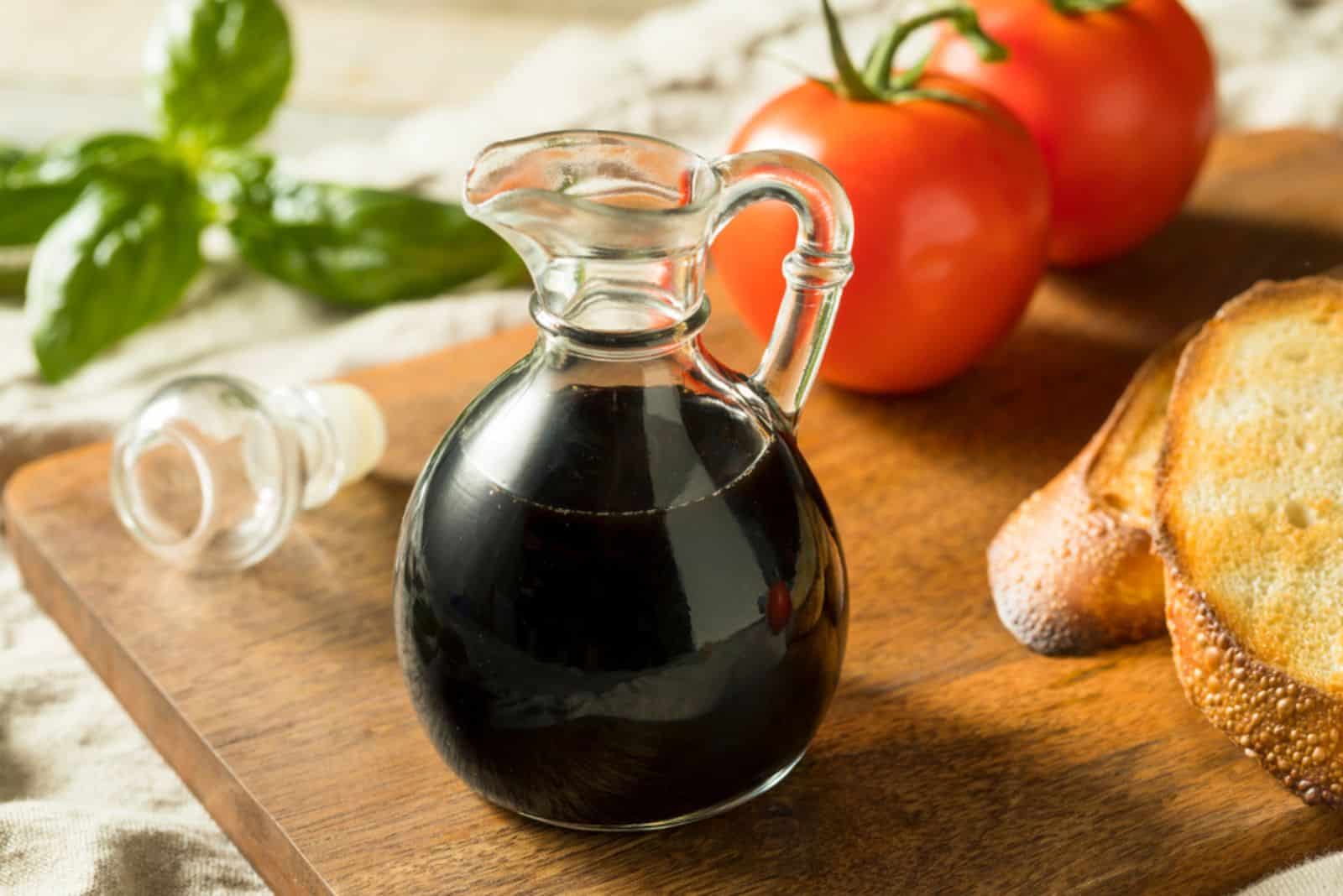
Balsamic vinegar is definitely one of the best alternatives for black vinegar. It successfully mimics the flavor of black vinegar and you can easily find balsamic vinegar in most grocery stores and supermarkets.
The only two little differences are that balsamic vinegar is a little bit sweeter and it has a stronger flavor than black vinegar.
Balsamic vinegar is made from grape juice that has been cooked down and then aged in barrels. You can use it for drizzling over meats or for dressing salads.
When substituting it for black vinegar, use 1 tablespoon for every 2 tablespoons of black vinegar.
3. Malt Vinegar
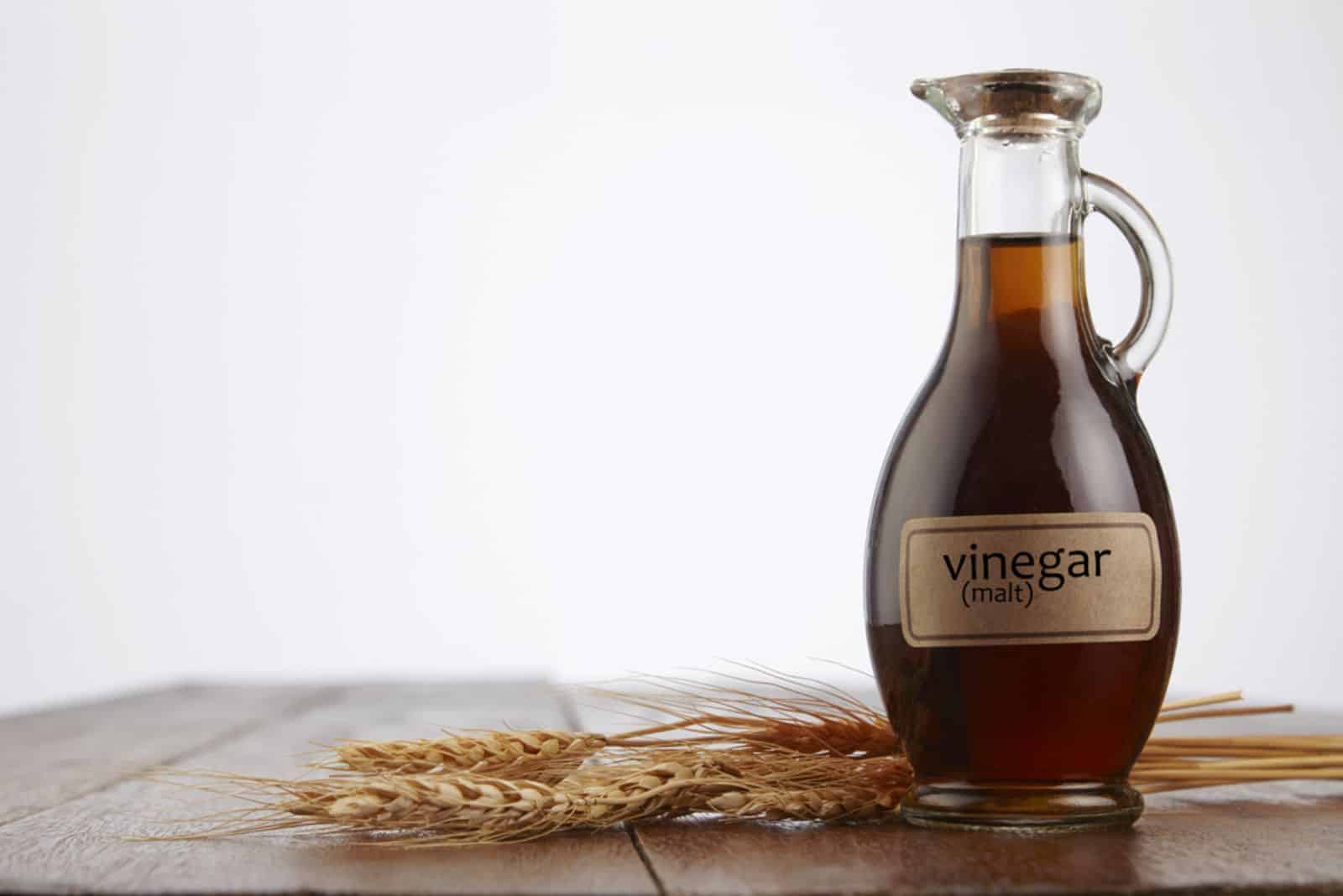
Since malt vinegar is one of the ingredients of black vinegar itself, it is not hard to conclude that it can serve well as a black vinegar substitute.
It is made from malt. Malt is a type of grain used for making whiskey and beer.
Malt vinegar is a deep brown liquid that possesses a rich flavor. It can be used in various types of dishes but it is most suitable for fish and chips.
It can also be used in soups, sauces, and stews.
When substituting it for black vinegar, you can use the same amount as you would with black vinegar.
4. White Wine Vinegar
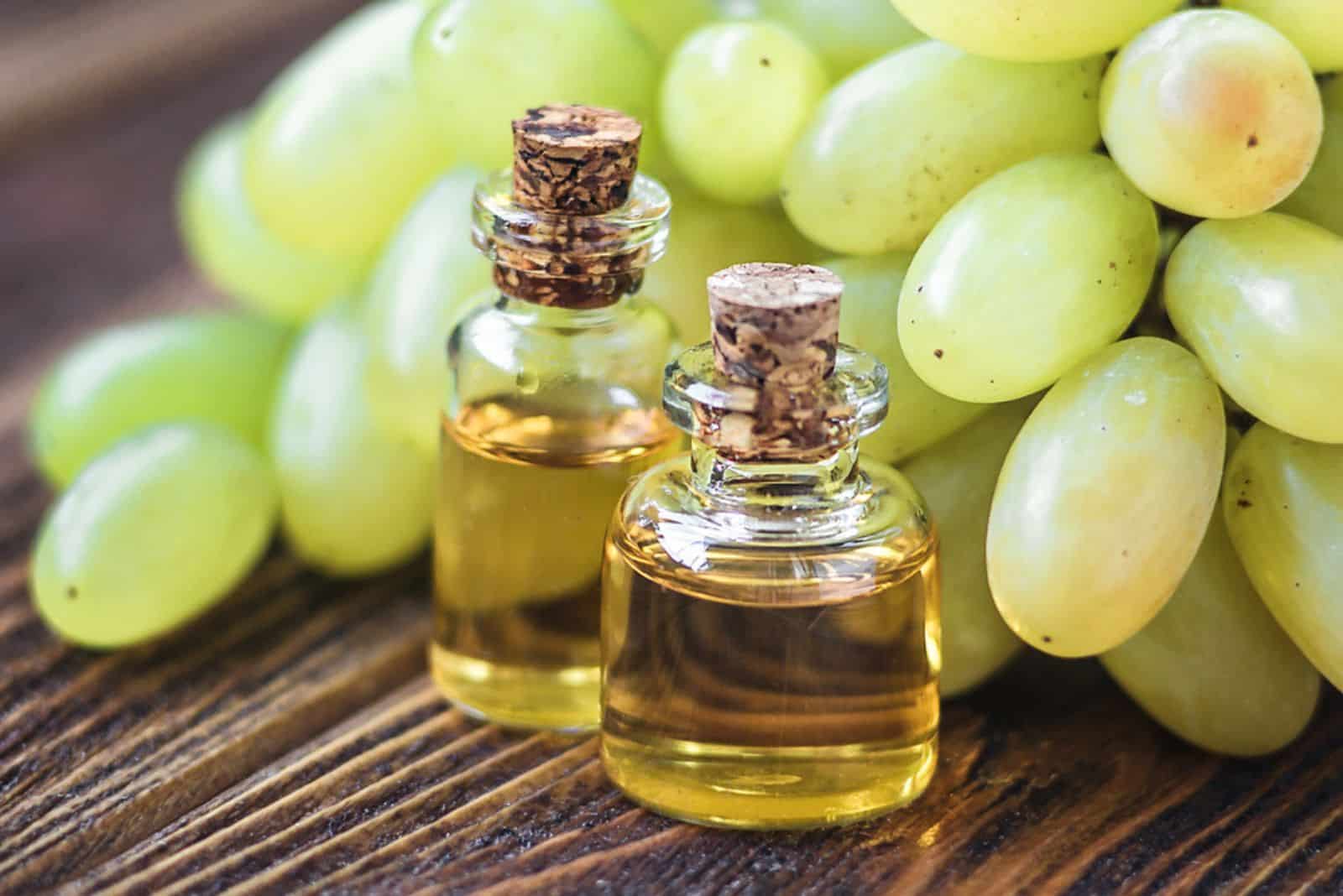
White wine vinegar is not that similar to black vinegar when you compare it to the previous options. But still, it can serve as a decent substitute for black vinegar.
That is especially the case if you don’t mind a lower level of sweetness. This type of vinegar provides a complex flavor and higher acidity.
Also, there is a hint of fruitiness due to the presence of wine that is, as you know, made from grapes.
If you really miss that sweet flavor, you can add a bit of sugar or honey, but not much.
You can use white wine vinegar in stews, soups, salads, and stir-fry dishes. Just take into account that 1 tablespoon of white wine vinegar equals 2 tablespoons of black vinegar.
See Also: 8 Key Differences Between White Vinegar Vs White Wine Vinegar
5. Red Wine Vinegar

Another wine vinegar, this time made from red grapes where acetic acid-forming bacteria converted the ethanol into acetic acid.
This one is more similar to black vinegar, especially in terms of color since it has a red color and maintains the dark color of your dishes.
It also possesses a sweet flavor that is similar to black vinegar. The main difference is in its acidity. The level of acidity is not as high as it is in black vinegar.
But nonetheless, it can still serve as a decent black vinegar substitute in various dishes like salad dressings, and marinades, or as an addition to cooked meats and veggies.
When substituting, use 1 tablespoon of red wine vinegar for every 2 tablespoons of black vinegar.
6. Apple Cider Vinegar
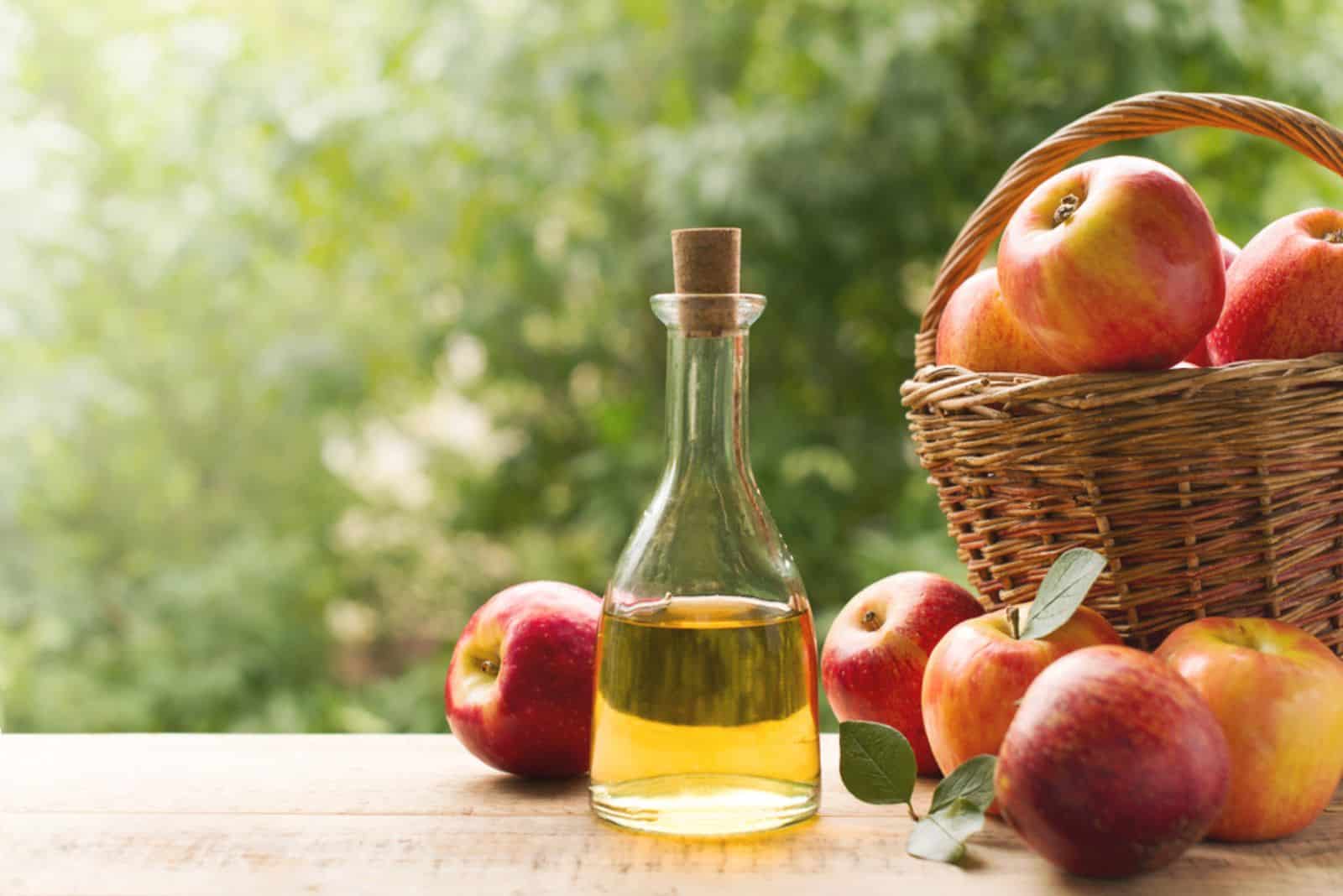
And, of course, there is the popular apple cider vinegar. I am sure that most of you have at least one bottle on your kitchen shelf.
That is especially true for people who live a healthy life since apple cider vinegar is extremely beneficial for your overall health.
Aside from that, it can also serve as a great black vinegar substitute since it offers a bright tang and brisk acidity. It also has that tasty apple flavor that some people really like.
You can freely use it in salads and various cooked dishes including marinades, slow cooker meals, and many others.
You can maintain an equal ratio when substituting it for black vinegar.
See Also: 18 Tangy And Zesty Apple Cider Substitutes For Cooking
7. Sherry Vinegar
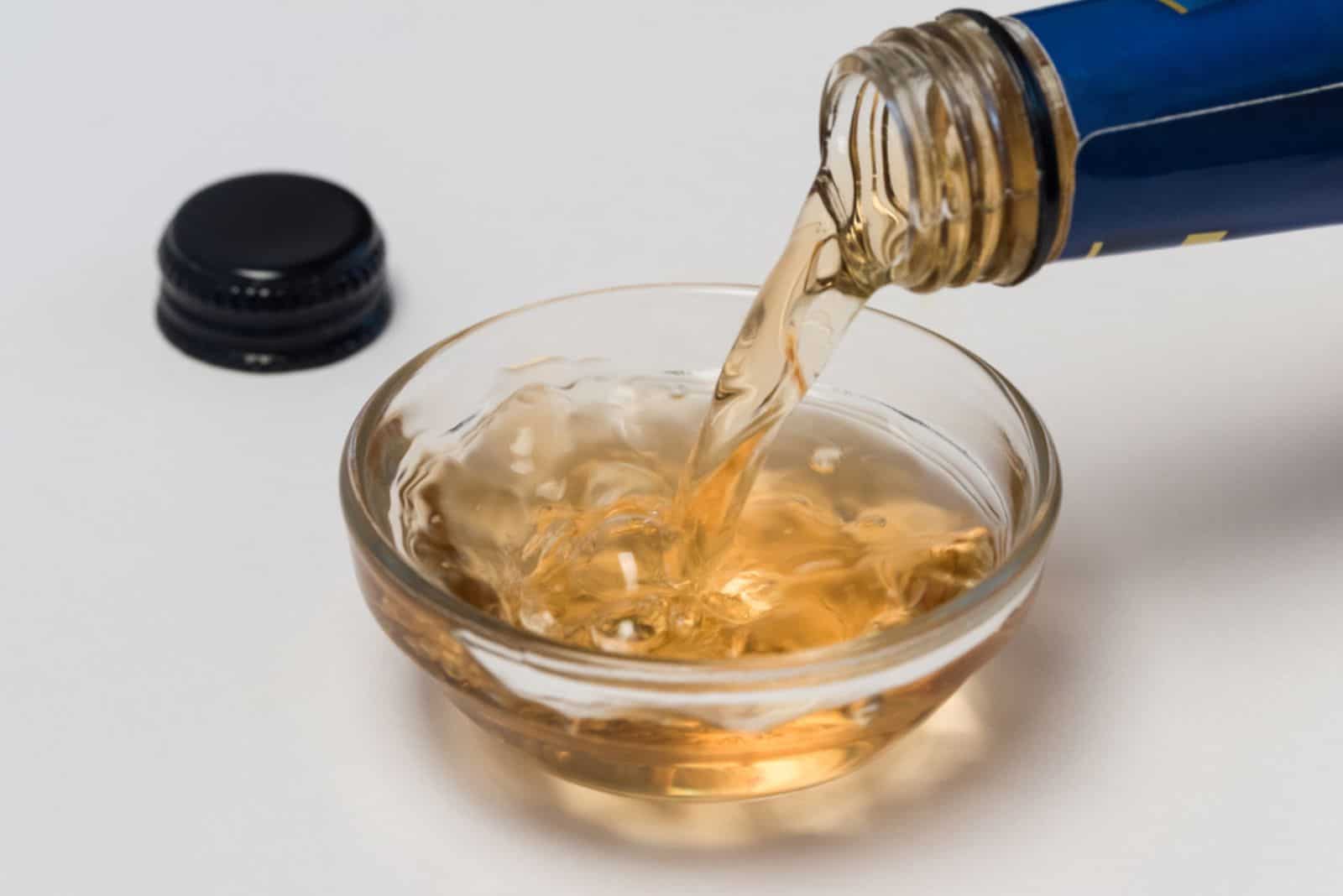
As the name suggests, sherry vinegar is obtained from sherry wine. It is naturally fermented and aged for a minimum of 6 months. And the longer the time frame, the darker the sherry vinegar gets.
Just like wine, the longer it is aged, the higher in quality it is, i.e. the more complex the flavor will be. And, the flavor profile is complex indeed. Something similar to black vinegar.
It is the perfect combination of acidity and sweet flavor. You can use this kind of vinegar in soups and marinades. You can drizzle it over roasted meat, veggies, and fish as well.
Keep in mind that this vinegar is a little more expensive since it is made from fine wine and it is aged well. Actually, the more it ages, the more expensive it becomes.
8. Date Vinegar
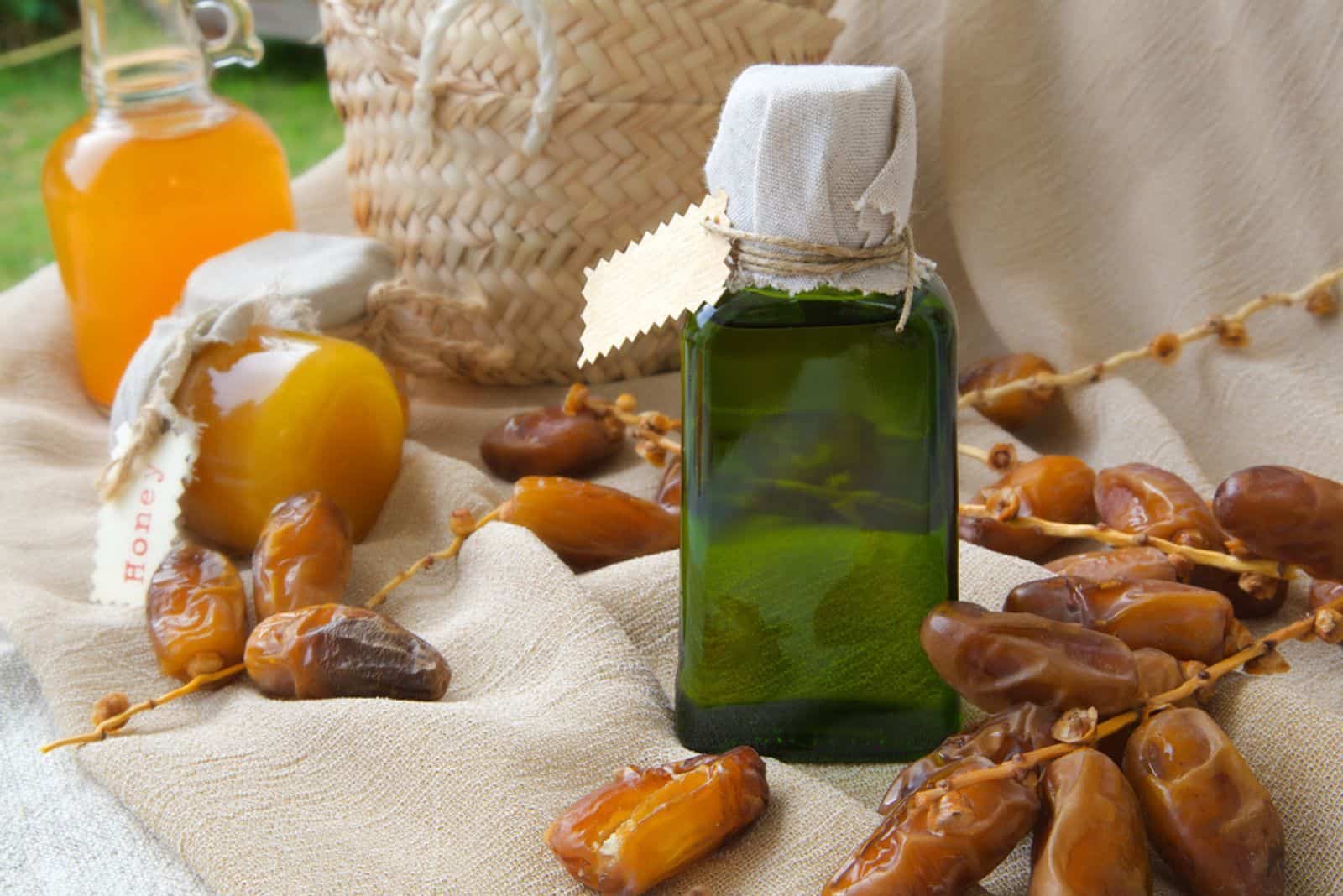
Date vinegar is one of the oldest types of vinegar out there. It is mostly produced in some Middle Eastern countries including Saudi Arabia, Iraq, and Iran.
This type of vinegar, which is made from date fruit, is much sweeter than black vinegar and it possesses that specific fruity undertone from date flavor profile as well. It is also more concentrated and acidic than black vinegar.
You can use it in many dishes, but you can also use it as a cleaning agent and for medicinal purposes since it possesses some great health benefits.
It is good for fighting cancer, weight loss, heart disease, menstrual disorders, fatigue, inflammation, headaches, and much more.
What Are Some Non-Vinegar Alternatives?
Alongside vinegar substitutes for the black rice version, there are some non-vinegar alternatives for black vinegar as well. And here is a list of 5 excellent non-vinegar substitutes for Chinese black rice vinegar.
1. Worcestershire Sauce
The first non-vinegar substitute is Worcestershire sauce. It is a fermented condiment made from vinegar and flavored with various seasonings such as molasses, tamarind, onion, garlic, anchovies, etc.
This sauce is a perfect combination of umami, sweet, and acidic flavors. Although there are a lot of varieties of this sauce these days, the tanginess provided by the vinegar is the only constant that doesn’t change.
You can use it in braising liquids, soups, sauces, chicken broth, and even in pot pies.
2. Lemon Juice And Honey
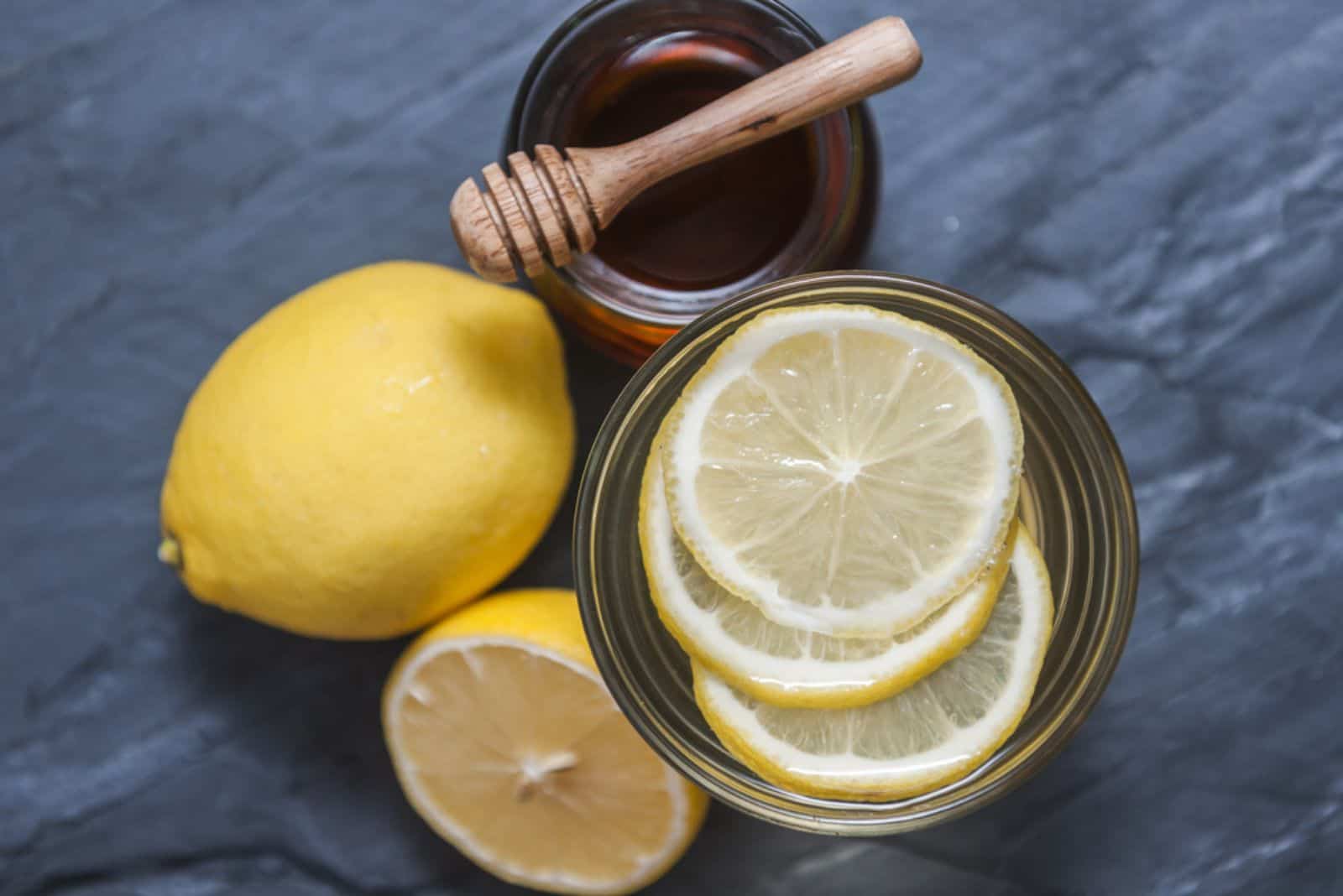
The combination of lemon juice and honey is not as popular as the black vinegar substitutes but it can serve as a decent alternative if you do not have any vinegar on your kitchen shelf.
Lemon juice has a very sour flavor and honey has a very sweet flavor. This combination of flavors can give you a somewhat similar flavor profile to black vinegar.
You need to squeeze one fresh lemon and add one teaspoon of honey to the mixture. One tablespoon of black vinegar equals 2 tablespoons of the mix.
3. Lime Juice And Honey
Since lemon and lime are very similar fruits, this mixture is quite similar to the previous one as well. There is only one major difference. Lime juice has a bitter taste and, therefore, you will probably have to add 2 teaspoons of honey per 1 lime.
But you can also adjust the mixture according to your preferences. When it comes to substituting, the ratio is the same as with lemon juice and honey. Two tablespoons of mixture equal 1 tablespoon of black vinegar.
4. Apple Juice
Apple juice provides you with the perfect combo of sweetness and acidity, similar to black vinegar. You can use both fresh apple juice and store-bought pasteurized apple juice.
If you want to suppress the acidity of apple juice, you are free to add 1 teaspoon of sugar or honey. When substituting, keep in mind that 3 tablespoons of apple juice are equal to 1 tablespoon of black vinegar.
5. Combination Of Soy Sauce And Rice Vinegar
And, finally, there is one combination of ingredients, i.e. the mixture of soy sauce and rice vinegar.
Rice vinegar is practically an essence of black vinegar and by adding a touch of savory and umami flavor to the sweet undertones of soy sauce, you will get a decent black vinegar substitute.
You can add this mixture to dishes like stir-fries, noodles, and grilled meats. Just take note that the combination is 1 tablespoon of black vinegar, 2 teaspoons of rice vinegar, and 1 teaspoon of soy sauce mixed together.
Final Words
There are all sorts of black vinegar recipes out there and most of them produce amazingly delicious dishes. But, of course, there are times when you do not have any black vinegar on your kitchen shelf.
Then this list comes into play. It is the ultimate list of 8 vinegar and 5 non-vinegar alternatives. These black vinegar substitutes have been verified and it is yours only to choose the one that suits you best at the given moment, taking into account all the factors.
After that, you can freely add it to your dish in an appropriate way and enjoy it.
